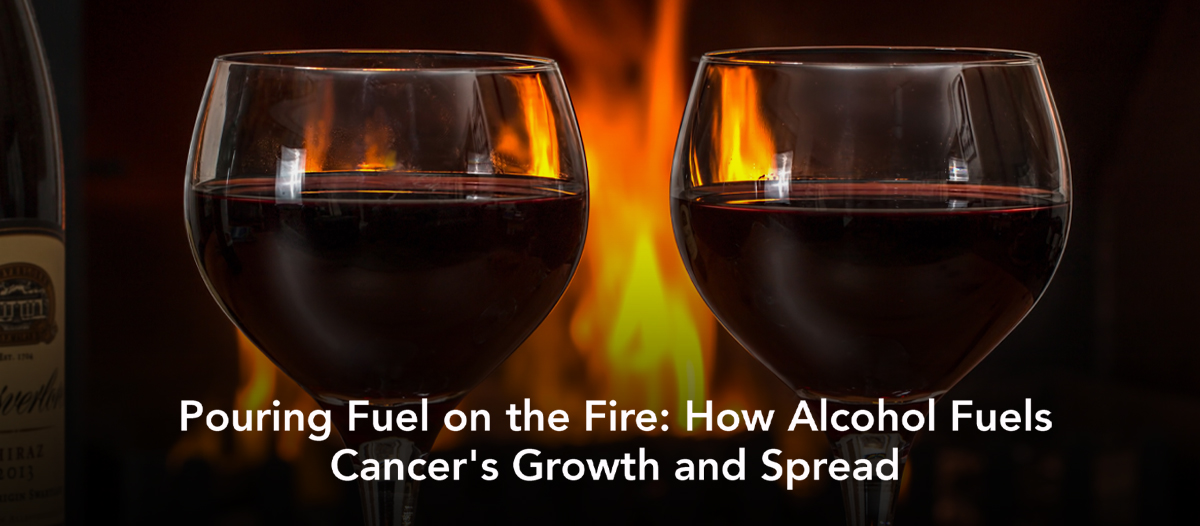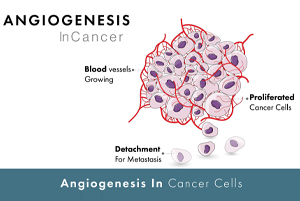Pouring Fuel on the Fire: How Alcohol Fuels Cancer’s Growth and Spread – Quick Summary
Alcohol doesn’t just increase your risk of developing cancer—it can actively promote its growth and spread. Despite popular misconceptions, even moderate drinking is linked to several forms of cancer. Alcohol disrupts immune function, fuels inflammation, impairs detoxification, alters hormone balance, and feeds cancer cells the very sugar they thrive on. Understanding these mechanisms is crucial for prevention, healing, and making empowered lifestyle choices.
Key Takeaways:
✔ Alcohol is a Group 1 carcinogen—linked to at least 7 types of cancer, including breast and colorectal
✔ It weakens the immune system and promotes chronic inflammation, creating a fertile ground for cancer
✔ Alcohol impairs liver detoxification and elevates estrogen levels, contributing to hormone-sensitive cancers
✔ Sugar from alcohol feeds cancer cells and increases oxidative stress
✔ Alcohol can reduce the effectiveness of cancer treatments and worsen prognosis
✔ Eli Jones, a pioneer in natural cancer treatment, strongly warned against alcohol use in cancer care
Now, let’s get into the details!
Pouring Fuel on the Fire: How Alcohol Fuels Cancer’s Growth and Spread
by Mark J Kaylor
Over the past few decades, melatonin has garnered considerable attention in oncology research due to its multifaceted role in combating cancer. While most well-known for regulating circadian rhythms, melatonin has demonstrated a range of actions that may be highly beneficial in both cancer prevention and treatment. Numerous preclinical studies and clinical trials have explored melatonin’s potential anti-cancer properties, showing its ability to inhibit cancer cell growth, enhance the effectiveness of conventional therapies, and protect healthy tissues from the damaging side effects of chemotherapy and radiation.
Alcohol as a Carcinogen: Direct Effects on Cancer
Ethanol and Acetaldehyde: The Cancer-Causing Duo
When consumed, alcohol (ethanol) is metabolized in the liver into acetaldehyde, a highly toxic and carcinogenic compound. Acetaldehyde:
- Damages DNA: It directly binds to DNA, causing mutations that can lead to cancerous growths.
- Hinders DNA Repair: By interfering with repair mechanisms, it allows damaged cells to survive and proliferate.
Site-Specific Risks
Alcohol is linked to several cancers, often through direct exposure:
- Oral and Throat Cancers: Ethanol acts as a solvent, making it easier for carcinogens like tobacco to penetrate tissues.
- Liver Cancer: Chronic alcohol use leads to cirrhosis, which dramatically increases the risk of liver cancer.
- Breast Cancer: Alcohol increases estrogen levels, a hormone linked to breast cancer. Even low consumption (3–6 drinks per week) raises the risk.
The Role of Free Radicals
Alcohol metabolism generates free radicals, unstable molecules that damage cells, proteins, and DNA. These reactive oxygen species (ROS) not only cause mutations but also promote an inflammatory environment conducive to cancer growth.
Indirect Contributions: Alcohol Creates the Perfect Storm
Chronic Inflammation
Inflammation is the body’s natural response to injury, but chronic inflammation from alcohol consumption causes ongoing tissue damage. This persistent inflammatory state leads to:
- Fibrosis and Cirrhosis: Scar tissue formation in organs, particularly the liver, which increases cancer risk.
- Promotion of Tumor Microenvironments: Inflammation releases growth factors and cytokines that support tumor initiation and spread.
Suppression of the Immune System
Alcohol weakens the immune system, reducing the body’s ability to detect and eliminate abnormal cells. This suppression allows cancer cells to evade immune surveillance, proliferate, and metastasize.
Nutrient Depletion
Chronic alcohol use depletes nutrients vital for DNA repair and immune health, including:
- Folate: Essential for DNA synthesis and repair; its deficiency is linked to colorectal cancer.
- Zinc: A key player in DNA stability and immune defense.
- Antioxidants: Alcohol depletes vitamins A, C, and E, reducing the body’s ability to neutralize free radicals.
Hormonal Imbalances
Alcohol consumption increases levels of estrogen and insulin-like growth factor-1 (IGF-1), both of which promote cell proliferation. This is particularly concerning for hormone-sensitive cancers like breast and endometrial cancer.
The Writings of Eli Jones: A Holistic View on Alcohol and Cancer
Eli Jones was a trailblazer in integrative cancer care, blending natural remedies with innovative insights. In his writings, Jones condemned alcohol as both a cause and complicating factor in cancer. He argued that alcohol:
- Poisoned Vital Forces: Jones believed alcohol disrupted the body’s natural ability to heal and resist disease.
- Fostered Disease States: By taxing the liver and immune system, alcohol weakened the body’s defenses against cancer.
- Compromised Recovery: Jones urged patients to avoid alcohol entirely, as it impeded detoxification and healing during treatment.
Modern research echoes Jones’ concerns, particularly regarding alcohol’s effects on immunity and inflammation, underscoring the timelessness of his advice.
Alcohol’s Role in Tumor Growth and Metastasis
Angiogenesis: Feeding the Tumor
Tumors require a blood supply to grow, a process known as angiogenesis. Alcohol consumption has been shown to stimulate angiogenic factors, enabling tumors to develop their own vascular networks. This not only facilitates growth but also provides a pathway for metastasis.
Tumor-Promoting Inflammation
Alcohol-induced inflammation releases tumor necrosis factor-alpha (TNF-α) and other pro-inflammatory cytokines. These compounds:
- Encourage cancer cell survival and proliferation.
- Attract immune cells that inadvertently promote tumor growth.
Epithelial-Mesenchymal Transition (EMT)
Alcohol promotes EMT, a process where cancer cells gain the ability to migrate and invade other tissues. This is a critical step in metastasis, allowing localized tumors to spread to distant organs.
Breaking the Cycle: A Holistic Approach to Alcohol and Cancer
Avoiding Alcohol
The most effective way to mitigate alcohol’s cancer risks is to avoid it entirely. Even modest reductions in consumption can significantly lower cancer risk, particularly for hormone-sensitive and digestive tract cancers.
Supporting Detoxification
For those recovering from alcohol’s effects, holistic detox strategies include:
- Milk Thistle: Protects and regenerates liver cells.
- N-acetylcysteine (NAC): Boosts glutathione, a powerful antioxidant that neutralizes free radicals.
- Turmeric: Its active compound, curcumin, reduces inflammation and supports liver detoxification.
Strengthening the Immune System
A strong immune system is crucial for identifying and destroying abnormal cells. Strategies include:
- Probiotics: Support gut health and immunity.
- Mushrooms: Reishi and Maitake mushrooms enhance immune function.
- Vitamins and Minerals: Ensure adequate intake of zinc, selenium, and vitamin C.
Anti-Inflammatory Diet
Incorporate foods that combat inflammation, such as:
- Fatty fish (rich in omega-3s)
- Leafy greens (high in antioxidants)
- Berries (anti-inflammatory polyphenols)
Turning Knowledge into Action
Alcohol’s link to cancer is undeniable. From its direct carcinogenic effects to its ability to create a tumor-friendly environment, alcohol fuels the fire of cancer. As Eli Jones emphasized over a century ago, avoiding alcohol and adopting a holistic approach to health can significantly reduce cancer risk and support recovery.
By focusing on nutrition, detoxification, immune support, and lifestyle changes, we can empower ourselves to take control of our health and prevent cancer from gaining a foothold.
References
- International Agency for Research on Cancer (IARC). Alcohol and Cancer.
- Seitz, H. K., & Stickel, F. (2007). Molecular Mechanisms of Alcohol-Induced Carcinogenesis.
- American Cancer Society. Alcohol Use and Cancer.
- Jones, E. Cancer: Its Causes, Symptoms and Treatment.
- LoConte, N. K., et al. (2018). Alcohol and Cancer: A Statement of the American Society of Clinical Oncology.
- Rehm, J., & Shield, K. D. (2013). Key studies of alcohol and disease.
- Rehm, J., & Soerjomataram, I., (2019). Does Alcohol Use Affect Cancer Risk?
Mark J. Kaylor is a passionate advocate for holistic health and natural remedies, with a focus on extending both lifespan and healthspan. As the founder of the Radiant Health Project and host of Radiant Health Podcast, Mark blends in-depth research with traditional wisdom to empower others on their journey to vibrant health. Through his writing and speaking, he shares insights into the transformative power of herbs, nutrition, and lifestyle practices.
Disclaimer: All information and results stated here is for educational and entertainment purposes only. The information mentioned here is not specific medical advice for any individual and is not intended to be used for self-diagnosis or treatment. This content should not substitute medical advice from a health professional. Always consult your health practitioner regarding any health or medical conditions.








